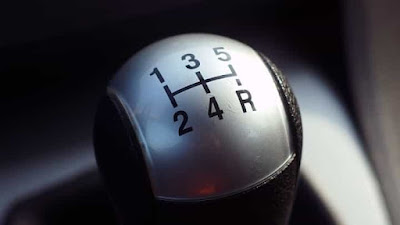When I was 16, my dad informed me that I needed to learn how to drive a manual vehicle as part of my maturation process into the adult world. His contention was that if I could learn to drive a manual car, I could drive any vehicle. He said it was a skill that I would find useful later on in life. I trusted him because he was a driver's ed instructor in the summers when he wasn't teaching high school kids and he had always pointed me in the right direction. After a few lessons where he explained how the whole thing worked with the clutch and shifting gears, he dropped me off at a local high school parking lot on a Saturday morning and told me to practice until I got it. He then told me to drive home when I was ready. Whether or not you agree or disagree with this parenting style is not the point of this blog. The point was that I needed the time and space to learn how to do something and then demonstrate my proficiency if I wanted to get back home. I'd like to report that my driving practice was as smooth as the opening scene in Baby Driver, but alas, if I'm being truly honest, it was more like this.
The entire experience is something that I will remember my entire life. Although I received perfectly good instruction from my father, putting that lesson into practice was anything but smooth. I stalled the vehicle multiple times, gave myself positive TED talks in my head before they were really a thing, said a few swear words, about killed the transmission on two or three occasions, swore off driving altogether countless times, and almost wrecked the car into a light pole in a vacant parking lot. I spent five hours that day experiencing a gamut of emotions, but in the end, I made it home with myself and the car in one piece. I have driven a manual car a handful of times since that day and I have always struggled with the notion that it was a skill like my father told me it was. The reality is that the "skill" he was talking about had nothing to do with actually driving the car.
Learning to drive a stick shift requires timing, feel, and patience. The vehicle you are in control of will tell you when it is time to shift gears. If you aren't paying attention, you will grind your gears, rev your engine too much, stall out, or drop your transmission altogether. The skill is choosing the appropriate gear so you can move forward safely. Unfortunately, many of us have learned how to do this with a vehicle, but we haven't learned how to do this with our own bodies. Too often, we are running our engines at a level we cannot sustain for long periods of time and we fail to downshift to a lower gear so we can cool off. This happens for a variety of reasons, but the primary one is that we aren't willing to prioritize what is most important to us. We make everything a big deal and when everything is a big deal, nothing is a big deal.
We all have a choice to make when it comes to choosing which gear we want to operate in. Sometimes we need to go all out and other times we need to just cruise. What we need to avoid, however, is going into neutral or even worse, reverse. Choose the gear that is going to work best for you and allow you to sustain the awesome road trip that you are on. You may never have to operate a manual vehicle in your life, but you can become skillful in shifting gears in your personal and professional life like a boss.
#ONWARD #FORGE




